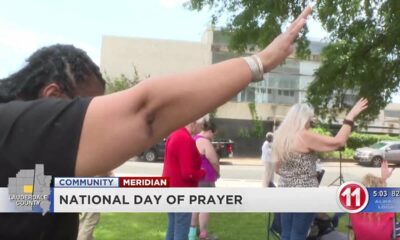Kaiser Health News
Congress Likely to Kick the Can on Covid-Era Telehealth Policies
Sarah Jane Tribble, KFF Health News
Wed, 10 Apr 2024 09:00:00 +0000
Nearly two hours into a Capitol Hill hearing focused on rural health, Rep. Brad Wenstrup emphatically told the committee's five witnesses: “Hang with us.”
Federal lawmakers face a year-end deadline to solidify or scuttle an array of covid-era payment changes for telehealth services that include allowing people to stay in their homes to see a doctor or therapist.
During the hearing in early March, Wenstrup and other House members offered personal anecdotes on how telehealth, home visits, and remote monitoring helped their patients, relatives, and constituents. Wenstrup, a Republican from Ohio who is also a podiatric surgeon and a retired Army reservist, told the audience: “Patients are less anxious and heal better when they can be at home.”
Most of the proposals focus on how Medicare covers telehealth services. But the rules affect patients on all types of insurance plans because typically private insurers and some government programs follow Medicare's example. Without congressional action, virtual health care services like audio-only calls or meeting online with specialty doctors — such as an occupational therapist — could end. The bills would also continue to allow rural health clinics and other health centers to offer telehealth services while waiving a requirement for in-person mental health visits.
Telehealth use ballooned in the early months of the covid-19 pandemic and grew into a household term. The practice has become a popular issue for lawmakers on both sides of the aisle.
In one U.S. Census Bureau survey conducted from April 2021 to August 2022, Medicare and Medicaid enrollees reported using telehealth visits the most — 26.8% and 28.3%, respectively. The survey of nearly 1.2 million adults also found that Black patients and those earning less than $25,000 reported high rates of telehealth use. Notably, people of color were more likely to use audio-only visits.
Ensuring access to telehealth services “is the best public policy,” said Debbie Curtis, a vice president of McDermott+Consulting, a Washington, D.C.-based health care lobbying firm. “It's the best business outcome. It's the best patient care outcome.”
But it's a presidential election year and Congress is a “deadline-driven organization,” Curtis said. She expects that Congress will be “kicking the can” past the November election.
Kyle Zebley, senior vice president of public policy at the American Telemedicine Association who also lobbies on Capitol Hill, said Congress “might well be in that lame-duck period.” “This is no way to run a health care system on a popular bipartisan issue,” he said.
In January, lawmakers — including senators from Mississippi and South Dakota — sent a letter to the Biden administration urging the White House to work quickly with Congress to ensure payments continue for Medicare patients who use telehealth, “especially for rural and underserved communities.”
Maya Sandalow, a senior policy analyst for the Bipartisan Policy Center, a Washington, D.C.-based think tank, said lawmakers and policymakers are likely to consider a temporary extension of the payments rather than permanent changes.
“Research is still coming out that covers more recent years than the acute effects of the pandemic,” Sandalow said. The center expects to release policy recommendations in the coming months.
Questions being considered include which kind of health care services are best for audio-only and video visits. Sandalow said researchers are also weighing how telehealth can “expand access to affordable, high-quality care while ensuring in-person options remain for patients.”
In North Dakota, Sanford Health's David Newman said virtual care is often the only way some of his patients in the western part of the state can get sub-specialty care, such as with behavioral health.
Newman, an endocrinologist and Sanford's medical officer of virtual care, said 10% to 20% of his patients are seen virtually during the summer, as compared with about 40% in the winter months because “the weather can be so bad” that roads are impassable.
In winters past, Newman would sit around “doing nothing for a day” because patients couldn't visit him. Now, he has a full clinic using telehealth technology.
“I tell my patients that if you can make a restaurant reservation or if you can order a pizza online, you can do a virtual visit,” Newman said.
——————————
By: Sarah Jane Tribble, KFF Health News
Title: Congress Likely to Kick the Can on Covid-Era Telehealth Policies
Sourced From: kffhealthnews.org/news/article/congress-telehealth-payments-covid-era-policies-deadline-delay/
Published Date: Wed, 10 Apr 2024 09:00:00 +0000
Kaiser Health News
KFF Health News’ ‘What the Health?’: Abortion Access Changing Again in Florida and Arizona
Thu, 02 May 2024 19:30:00 +0000
The Host
Julie Rovner
KFF Health News
Julie Rovner is chief Washington correspondent and host of KFF Health News' weekly health policy news podcast, “What the Health?” A noted expert on health policy issues, Julie is the author of the critically praised reference book “Health Care Politics and Policy A to Z,” now in its third edition.
The national abortion landscape was shaken again this week as Florida's six-week abortion ban took effect. That leaves North Carolina and Virginia as the lone Southern states where abortion remains widely available. Clinics in those states already were overflowing with patients from across the region.
Meanwhile, in a wide-ranging interview with Time magazine, former President Donald Trump took credit for appointing the Supreme Court justices who overturned Roe v. Wade, but he steadfastly refused to say what he might do on the abortion issue if he is returned to office.
This week's panelists are Julie Rovner of KFF Health News, Sarah Karlin-Smith of the Pink Sheet, Alice Miranda Ollstein of Politico, and Rachana Pradhan of KFF Health News.
Panelists
Sarah Karlin-Smith
Pink Sheet
Alice Miranda Ollstein
Politico
Rachana Pradhan
KFF Health News
Among the takeaways from this week's episode:
- Florida's new, six-week abortion ban is a big deal for the entire South, as the state had been an abortion haven for patients as other states cut access to the procedure. Some clinics in North Carolina and southern Virginia are considering expansions to their waiting and recovery rooms to accommodate patients who now must travel there for care. This also means, though, that those traveling patients could make waits even longer for local patients, including many who rely on the clinics for non-abortion services.
- Passage of a bill to repeal Arizona's near-total abortion ban nonetheless leaves the state's patients and providers with plenty of uncertainty — including whether the ban will temporarily take effect anyway. Plus, voters in Arizona, as well as those in Florida, will have an opportunity in November to weigh in on whether the procedure should be available in their state.
- The FDA's decision that laboratory-developed tests must be subject to the same regulatory scrutiny as medical devices comes as the tests have become more prevalent — and as concerns have grown amid high-profile examples of problems occurring because they evaded federal review. (See: Theranos.) There's a reasonable chance the FDA will be sued over whether it has the authority to make these changes without congressional action.
- Also, the Biden administration has quietly decided to shelve a potential ban on menthol cigarettes. The issue raised tensions over its links between health and criminal justice, and it ultimately appears to have run into electoral-year headwinds that prompted the administration to put it aside rather than risk alienating Black voters.
- In drug news, the Federal Trade Commission is challenging what it sees as “junk” patents that make it tougher for generics to come to market, and another court ruling delivers bad news for the pharmaceutical industry's fight against Medicare drug negotiations.
Plus, for “extra credit” the panelists suggest health policy stories they read this week that they think you should read, too:
Julie Rovner: ProPublica's “A Doctor at Cigna Said Her Bosses Pressured Her To Review Patients' Cases Too Quickly. Cigna Threatened To Fire Her,” by Patrick Rucker, The Capitol Forum, and David Armstrong, ProPublica.
Alice Miranda Ollstein: The Associated Press' “Dozens of Deaths Reveal Risks of Injecting Sedatives Into People Restrained by Police,” by Ryan J. Foley, Carla K. Johnson, and Shelby Lum.
Sarah Karlin-Smith: The Atlantic's “America's Infectious-Disease Barometer Is Off,” by Katherine J. Wu.
Rachana Pradhan: The Wall Street Journal's “Millions of American Kids Are Caregivers Now: ‘The Hardest Part Is That I'm Only 17,” by Clare Ansberry.
Also mentioned on this week's podcast:
- Time's “How Far Trump Would Go,” by Eric Cortellessa.
- NPR's “Why Is a 6-Week Abortion Ban Nearly a Total Ban? It's About How We Date a Pregnancy,” by Selena Simmons-Duffin.
- NPR's “'Sicko's' Peeno Sees Few Gains in Health Insurance,” by Julie Rovner.
- CNN's “Walmart Will Close All of Its Health Care Clinics,” by Nathaniel Meyersohn.
Credits
Francis Ying
Audio producer
Emmarie Huetteman
Editor
To hear all our podcasts, click here.
And subscribe to KFF Health News' “What the Health?” on Spotify, Apple Podcasts, Pocket Casts, or wherever you listen to podcasts.
——————————
Title: KFF Health News' ‘What the Health?': Abortion Access Changing Again in Florida and Arizona
Sourced From: kffhealthnews.org/news/podcast/what-the-health-345-abortion-access-florida-arizona-may-2-2024/
Published Date: Thu, 02 May 2024 19:30:00 +0000
Kaiser Health News
DIY Gel Manicures May Harm Your Health
Tarena Lofton
Thu, 02 May 2024 09:00:00 +0000
A fresh set from the comfort of your own home? DIY gel nails have been all the rage on social media, but the practice could cause you to develop a life-changing allergy. In a TikTok video, creator @alina.gene describes developing an acrylate allergy from doing gel nails at home. Now, when exposed to acrylates, the creator feels severe pain.
The creator warns viewers not to self-apply nail polish that requires a UV light to cure. In later videos, @alina.gene explains that at-home use differs from in-salon use because salon professionals have access to higher-quality chemicals that are less likely to cause reactions and that they also have proper training on how to safely apply the products.
“I know I sound real dramatic because an allergy to gel nails or even an allergy to acrylates isn't going to kill you, but the thing is, in the wrong situation it could prevent you from getting lifesaving medical care,” said @alina.gene in another video. Common medical products contain acrylates, and developing this allergy can cause major issues in obtaining future medical care.
We asked an allergist to walk us through this viral video.
If you enjoyed this story from the KFF Health News social team, follow us on Instagram @KFFHealthNews.
✍️: KFF Health News Audience Engagement Team
——————————
By: Tarena Lofton
Title: DIY Gel Manicures May Harm Your Health
Sourced From: kffhealthnews.org/news/article/diy-gel-manicures-health-risks/
Published Date: Thu, 02 May 2024 09:00:00 +0000
Did you miss our previous article…
https://www.biloxinewsevents.com/robert-f-kennedy-jr-is-wrong-about-a-ban-on-nih-research-about-mass-shootings/
Kaiser Health News
Robert F. Kennedy Jr. Is Wrong About a Ban on NIH Research About Mass Shootings
Louis Jacobson, PolitiFact
Thu, 02 May 2024 09:00:00 +0000
“Congress prohibits the NIH from researching the cause of mass shootings.”
Robert F. Kennedy Jr. in an April 21 post on X
The National Institutes of Health is the federal government's main agency for supporting medical research. Is it barred from researching mass shootings? That's what presidential candidate Robert F. Kennedy Jr. said recently.
Kennedy, whose statements about conspiracy theories earned him PolitiFact's 2023 “Lie of the Year,” is running as an independent third-party candidate against President Joe Biden, the presumptive Democratic candidate, and the presumptive Republican nominee, former President Donald Trump.
On April 21 on X, Kennedy flagged his recent interview with conservative commentator Glenn Beck, which touched on gun policy. Kennedy summarized his gun policy views in the post, writing, “The National Institutes of Health refuses to investigate the mystery; in fact, Congress prohibits the NIH from researching the cause of mass shootings. Under my administration, that rule ends — and our kids' safety becomes a top priority.”
But this information is outdated.
In 1996, Congress passed the “Dickey Amendment,” an appropriations bill provision that federal officials widely interpreted as barring federally funded research related to gun violence (though some observers say this was a misinterpretation). Congress in 2018 clarified that the provision didn't bar federally funded gun-related research, and funding for such efforts has been flowing since 2020.
Kennedy's campaign did not provide evidence to support his statement.
What Was the Dickey Amendment?
After criticizing some federally funded research papers on firearms in the mid-1990s, pro-gun advocates, including the National Rifle Association, lobbied to halt federal government funding for gun violence research.
In 1996, Congress approved appropriations bill language saying that “none of the funds made available for injury prevention and control at the Centers for Disease Control and Prevention may be used to advocate or promote gun control.” The language was named for one of its backers, Rep. Jay Dickey (R-Ark).
But the Dickey Amendment, as written, did not ban all gun-related research outright.
“Any honest research that was not rigged to produce results that helped promote gun control could be funded by CDC,” said Gary Kleck, a Florida State University criminologist. But CDC officials, experts said, interpreted the Dickey Amendment as banning all gun-related research funding.
This perception meant the amendment “had a chilling effect on funding for gun research,” said Allen Rostron, a University of Missouri-Kansas City law professor who has written about the amendment. Federal agencies “did not want to take a chance on funding research that might be seen as violating the restriction” and so “essentially were not funding research on gun violence.”
Also, the Dickey Amendment targeted only the CDC, not all other federal agencies. Congress expanded the restriction to cover NIH-funded research in 2011.
Although the Dickey Amendment didn't bar gun-related research, federal decision-makers acted as though it did by not pursuing such research.
Moving Past the Dickey Amendment
Over time, critics of the gun industry made an issue of the Dickey Amendment and gathered congressional support to clarify the amendment.
In 2018, lawmakers approved language that said the amendment wasn't a blanket ban on federally funded gun violence research. By 2020, federal research grants on firearms began to be issued again, starting with $25 million to be split between the CDC and NIH.
By now, the CDC and NIH are funding a “large portfolio” of firearm violence-related research, said Daniel Webster, a professor at the Johns Hopkins Bloomberg School of Public Health.
Also, the Justice Department's National Institute of Justice has funded the largest study of mass shootings to date, Webster said, and is seeking applications for studies of mass shootings.
Our Ruling
Kennedy said, “Congress prohibits the NIH from researching the cause of mass shootings.”
Although the Dickey Amendment, a provision of appropriations law supported by the gun industry, didn't prohibit all federally supported, gun-related research from 1996 to 2018, decision-makers acted as though it did.
However, in 2018, Congress clarified the provision's language. And since 2020, CDC, NIH, and other federal agencies have funded millions of dollars in gun-related research, including studies on mass shootings.
We rate Kennedy's statement False.
Our Sources
Robert F. Kennedy Jr. post on X, April 21, 2024
National Institutes of Health, “NIH Awards Additional Research and Training Grants to Support Firearm Injury and Mortality Prevention Science,” Sept. 20, 2023
National Institute of Justice, “Public Mass Shootings: Database Amasses Details of a Half Century of U.S. Mass Shootings with Firearms, Generating Psychosocial Histories,” Feb. 3, 2022
National Institute of Justice, “NIJ FY24 Research and Evaluation on Firearm Violence and Mass Shootings,” Feb. 5, 2024
Centers for Disease Control and Prevention, “Funded Research,” accessed April 22, 2024
American Psychological Association, “A Thaw in the Freeze on Federal Funding for Gun Violence and Injury Prevention Research,” April 1, 2021
Allen Rostron, “The Dickey Amendment on Federal Funding for Research on Gun Violence: A Legal Dissection” (American Journal of Public Health), July 2018
Email interview with Gary Kleck, a Florida State University criminologist, April 22, 2024
Email interview with Daniel W. Webster, professor at the Johns Hopkins Bloomberg School of Public Health, April 22, 2024
Email interview with Jaclyn Schildkraut, executive director of the Regional Gun Violence Research Consortium at the Rockefeller Institute of Government, April 22, 2024
Email interview with Mike Lawlor, University of New Haven criminologist, April 22, 2024
Email interview with Allen Rostron, University of Missouri-Kansas City law professor, April 22, 2024
KFF Health News is a national newsroom that produces in-depth journalism about health issues and is one of the core operating programs at KFF—an independent source of health policy research, polling, and journalism. Learn more about KFF.
USE OUR CONTENT
This story can be republished for free (details).
——————————
By: Louis Jacobson, PolitiFact
Title: Robert F. Kennedy Jr. Is Wrong About a Ban on NIH Research About Mass Shootings
Sourced From: kffhealthnews.org/news/article/fact-check-rfk-jr-wrong-nih-research-mass-shootings-gun-control-dickey-amendment/
Published Date: Thu, 02 May 2024 09:00:00 +0000
Did you miss our previous article…
https://www.biloxinewsevents.com/breaking-a-promise-california-deficit-could-halt-raises-for-disability-workers/
-
Mississippi Today5 days ago
On this day in 1951
-
Mississippi News6 days ago
One injured in Mississippi officer-involved shooting after chase
-
SuperTalk FM3 days ago
Festival merger in Leland sets up one major event for Mississippi Delta
-
SuperTalk FM4 days ago
PERS bill set to phase in employer rate increase heads to governor’s desk
-
Mississippi Business2 days ago
Geartek expanding operations in Alcorn County
-
Mississippi News3 days ago
Two women accused of shoplifting across southeast captured in Mississippi
-
SuperTalk FM6 days ago
Investigation underway after gun found in backpack of Ridgeland High School student
-
SuperTalk FM14 hours ago
Driver’s education set to become mandatory in Mississippi as bill passes



































